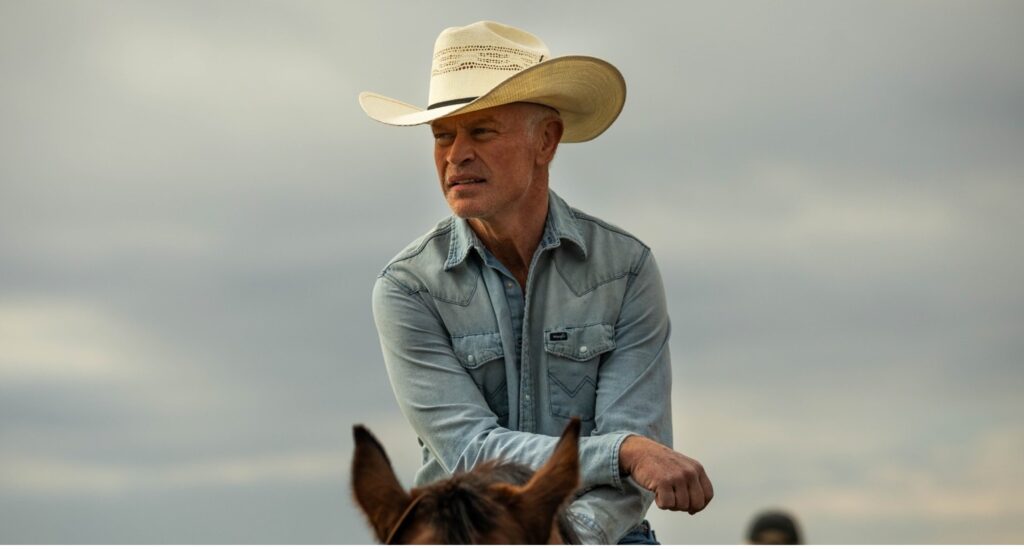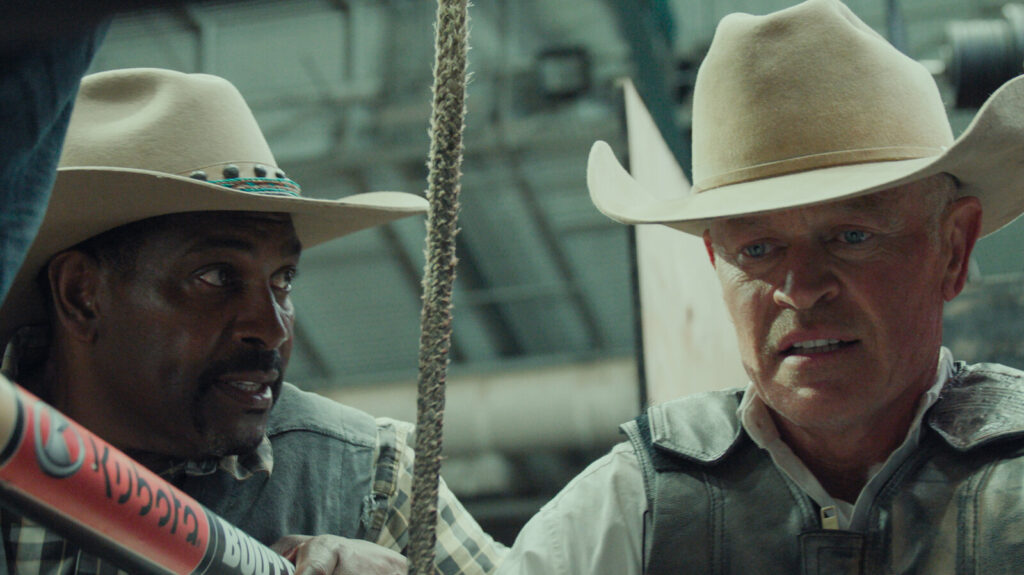The Last Rodeo tries to be a heartfelt tale of grit, faith, and family legacy, but it mostly stumbles out of the chute and never quite finds its footing. Set against a sepia-toned Deep South backdrop, the film looks the part of a rugged, nostalgic Western, but the narrative scaffolding is too jumbled and self-indulgent to deliver on its emotional promise.
Neal McDonough gives the film its one true asset as Joe Wainwright, a retired rodeo legend, portraying him with a weathered authenticity and effortless cool. His performance is grounded, lived-in, and quietly compelling. But even he can’t fully save a script that veers wildly in tone and logic.

The plot hinges on Joe’s stubborn mission to get back in the ring for the sake of his grandson Cody, who is diagnosed with a brain tumour after what appears to be a simple baseball injury. With insurance falling far short of covering the life-saving surgery, Joe sets his sights on a last-chance rodeo competition with a big cash prize… happening in a mere three days. It’s as implausible as it sounds, especially since Joe is recovering from spinal surgery and hasn’t ridden in years.
The pacing is a mess, with scenes awkwardly stitched together and events moving far too quickly for any emotional beat to land. There’s a short-lived road trip with his estranged buddy Charlie (an otherwise welcome subplot with Forrest Gump actor Mykelti Williamson) that gets crammed into a handful of scenes, despite their relationship being the most compelling one on offer.

Emotionally, the film wants to be a tearjerker about legacy and healing, but Joe’s character is often hard to root for. His refusal to wear a helmet (clinging instead to his cowboy hat), his stubborn macho posturing, and his obsession with facing the most dangerous bull feel less like courage and more like dated machismo. The film’s slow-motion hero shots and religious undertones only add to the sense that The Last Rodeo is more interested in glorifying old-school masculinity than examining it. Even insofar as the themes of familial love goes, Joe seems more interested in reliving his glory days than ensuring he has the best odds of winning and saving his grandson.
While there are hints of a better film – especially in McDonough’s and Williamson’s performances and the few fleeting moments of genuine connection – the overall experience is too disjointed, too tone-deaf, and ultimately too indulgent to really earn our sympathy. The Last Rodeo wants to say something about faith, family, and redemption, but like its ageing hero, it takes too many hard hits along the way to land a strong finish.
